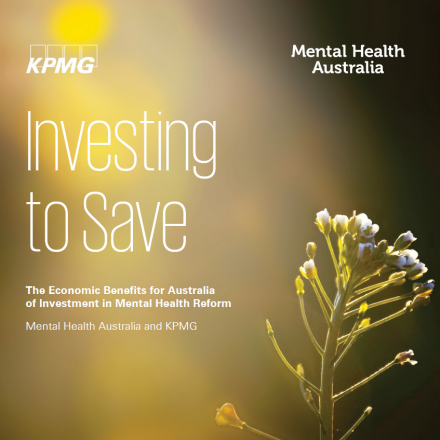Is mental health nursing really necessary?
 Article by Adjunct Associate Professor Kim Ryan, CEO, the Australian College of Mental Health Nurses
Article by Adjunct Associate Professor Kim Ryan, CEO, the Australian College of Mental Health Nurses
At the first meeting of the Australian Congress of Mental Health Nurses in 1974 (now the Australian College of Mental Health Nurses), the invited speaker, Dr Anne Davis, Associate Professor from the University of California presented a paper provocatively titled, ‘Is mental health nursing really necessary’, reflecting the search for identity. While we have somewhat moved on from there, I believe we now have another challenge ahead of us.
These days, there are many more people working in the mental health space. We have seen a growth of psychologists doing work that was once the bastion of mental health nurses, such as cognitive behavioural therapy. We have social workers and occupational therapists running therapeutic groups that were once run by mental health nurses. We have community mental health teams made up of mental health nurses and allied health professionals, which once would have been all mental health nurses.
We have seen the emergence of new workers in mental health such as care coordinators, peer workforce, mental health workers, ATSI mental health workers, partners in recovery, and an increasing growth in counsellors. All these mental health workers have a place, but what impact does this have on the role and identity of mental health nurses?
The more recent nursing workforce modeling undertaken by the then Health Workforce Australia identified that mental health nursing will be the area of greatest shortage, with a projected shortage in 2030 of approximately 17,000.
It is crucial that we develop a realistic and achievable mental health nursing workforce strategy addressing the issues we know will make a difference, namely education, good clinical placements, stigma of mental health nursing, workplace aggression, and extended scopes of practice. We need a plan that is long term, doable and addresses the challenges head on.
We need to make mental health nursing an attractive option for newly registered nurses and all nurses, no matter where they currently work. We want to invite all nurses to join us to discuss these ideas, and more at the ACMHN’s 41st International Mental Health Nursing Conference, Mental health nurses: shifting culture, leading change, being held in Brisbane from 7-9 October 2015.
I want speakers and delegates to get involved in the future of the profession; to consider and discuss how the profession can be moved forward. To think about how they collectively and individually operate to ensure the future of the profession? How do mental health nurses define, describe and advocate for the importance of mental health nursing knowledge and skills for consumers, their families, carers and the community more broadly? How do they recruit nurses into the mental health nursing specialty? How are they demonstrating and showcasing innovative models of care and workforce design to other key stakeholders within mental health? How do mental health nurses ensure that the profession is engaged as individuals, not just through the professional body, in the policies, politics and professionalism that is required, from 2015 and beyond?
Nurses are the largest part of the health workforce, but mental health nurses are just a small part within this. We need to build the numbers of all nurses who better understand mental health. This was highlighted by a conference title I saw recently for Primary Health Care nurses: ‘Every Nurse is a Mental Health Nurse: You Just Didn’t Know It!’
We need to support and encourage mental health leaders to champion this wonderful profession and to provide strong leadership to ensure the world knows that mental health nursing really is necessary. In response to the question of whether mental health nursing is really necessary, I am shouting from the roof tops: ABSOLUTELY!
__________
Do you have a comment on this story? Join the conversation on Twitter @AUMentalHealth




